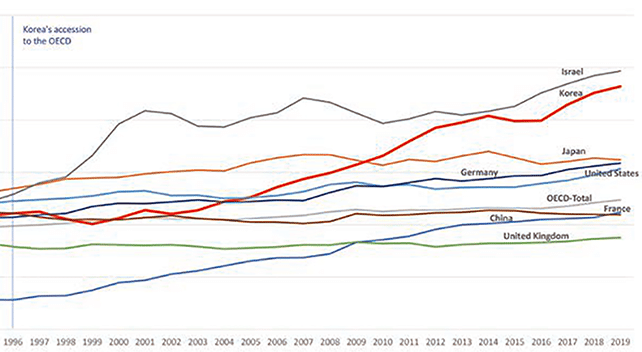Artificial Intelligence In The Life Sciences

Legal Technology Has Record VC Investment In 2021
November 18, 2021
Cloud Computing Today and Beyond
December 10, 2021
Artificial Intelligence is a way of using technology to analyze large amounts of data in much less time than it would take a human user, and to make predictions based on this data that can be helpful for a variety of applications. Deep Blue’s legendary chess match against Kasparov is a classic example of AI and its ability to predict certain outcomes based on data.
Technology is increasingly used in life sciences filed
Today, the rapidly expanding amount of data that is being created on a regular basis has brought AI to the forefront in order to make sense of the seemingly infinite amount of information that is available at our fingertips. AI in the life sciences (healthcare, oncology, biology, and other related disciplines) is especially exciting because of how deeply developments in this space affect our health and wellbeing.
For example, AI is being used by dermatologists to help diagnose possible cases of melanoma, the deadliest form of skin cancer. In a recently published article Dr. Kiran Motaparthi, director of dermatopathology and clinical associate professor of dermatology at the University of Florida, describes how they exposed a computer system to a large number of slides with images of different pathology specimens. They labeled each slide and “taught” the computer the “patterns” of cancer and the differences between cancerous and non-cancerous specimens. By teaching the computer the patterns of a melanoma specimen with a huge amount of data, they could then use the computer to help predict what is likely to be melanoma in new patients.
Potential to contribute significantly to medical progress
The same process of teaching a computer the patterns that correlate with a certain disease or diagnosis is being used by radiologists and oncologists to detect cancer in MRI and other scans. By using AI to help read and diagnose MRI and CIT scans and other medical data, radiologists can prioritize the patients that are the most likely to be at risk. This is especially relevant because of the high cost and time investment required by human radiologists, and the fallibility of human judgment (most radiologists scan hundreds if not thousands of images a day). Although nothing can replace the thoughtfulness and comprehensiveness of a human radiologist, AI can be a useful check and can help prioritize the most at-risk cases.
AI has the potential to revolutionize the life sciences, and change the way we think about healthcare. Medical professionals will have tools that will greatly shorten the time it takes to make an accurate diagnosis; pharma companies can use AI for faster and more accurate research, scholars can use AI for more accurate scholarly research, and much more.
FRONTEO USA believes in the growth of people and technology. We will continue to contribute to society in the field of AI × Natural Language.
- Source: https://www.technologynetworks.com/cancer-research/blog/using-artificial-intelligence-to-detect-melanoma-355242. Accessed October 29th, 2021.
- Source: https://www.genengnews.com/magazine/314/ai-in-the-life-sciences-six-applications/. Accessed October 29th, 2021.
- Source: https://www.news-medical.net/news/20211027/Ensemble-based-machine-learning-algorithms-accurately-predict-anti-cancer-drug-responses.aspx. Accessed October 29th, 2021.
訴訟分野のみならず、ライフサイエンス分野においてもAI技術は欠かせない存在になっています。例えばフロリダ大学の皮膚科医は悪性黒色腫(メラノーマ)の診断のため、コンピューターシステムに複数のがん標本を教え込み、悪性黒色腫になる可能性がある部位の予測にAIを役立てています。また、MRIやCITスキャンなどの医療データの読み込みにAIを活用し、診断の正確さ向上と時間の節約の恩恵を受ける病院も増えています。
AI技術の活用により、医療・ライフサイエンス分野は更に進歩するでしょう。
FRONTEOは、AI創薬領域の新たなビジネス戦略や、言語系AI医療機器の研究開発・プロモーション・グローバル展開を行い、ライフサイエンスAI事業の拡大と価値の最大化を目指します。




